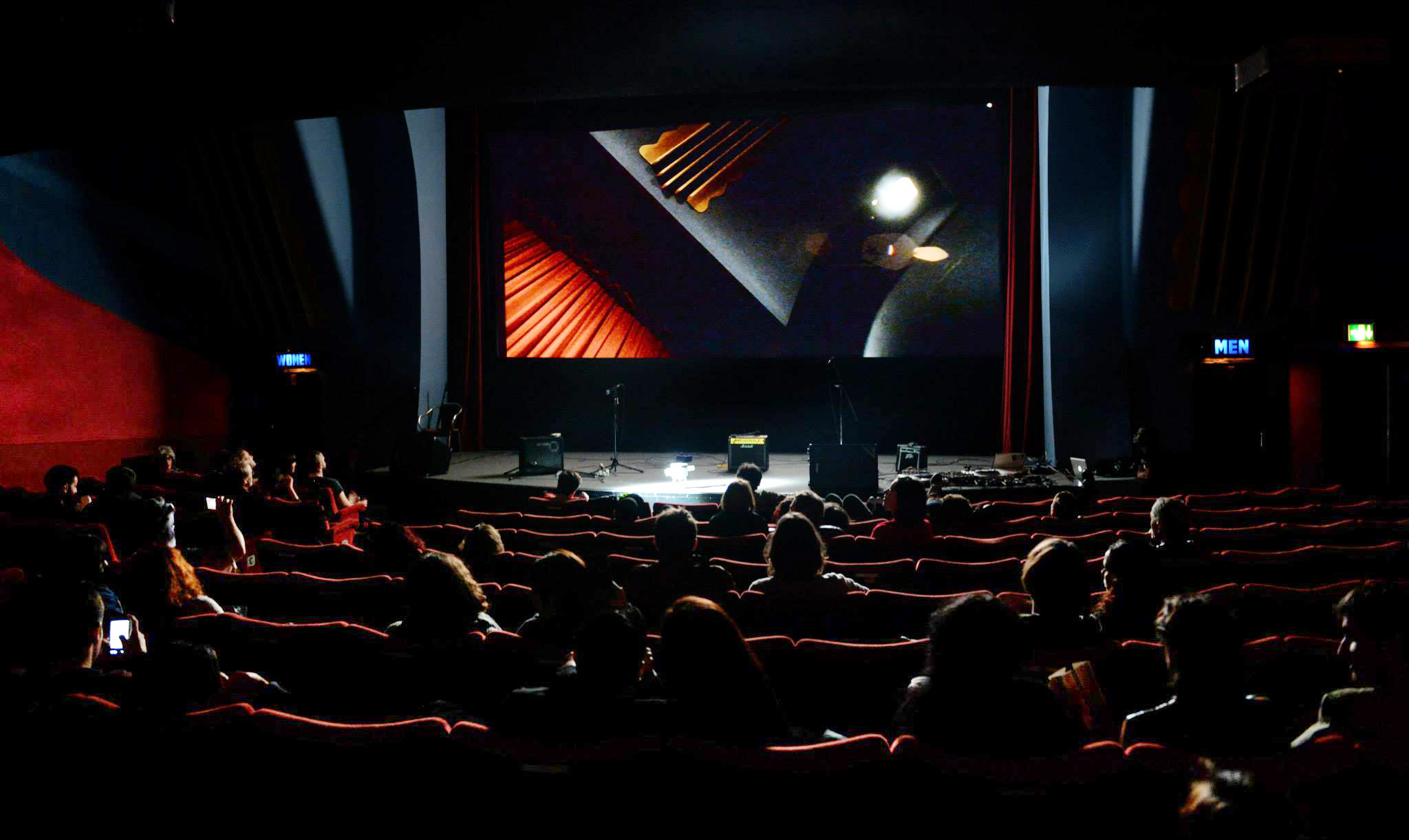Reference Rio explores the Rio cinema in London, an
independent art cinema constantly under threat of closure. The film responds
to the actual cinema space, the 1930s auditorium, a traditional cinema
experience, with plush red velvet seats and long red curtains that swish back
before the film starts. The cinema is first filmed using the 360-degree
rig, recording every detail of the empty architectural site, with the house
lights on and the curtains closed. The pre-recorded film of the auditorium is
then projected onto the cinema screen. The same rig is then used to track the
movement of the recording device, by replacing the camera with a laser. As the
audience ‘maps’ the projection to the laser within the ‘physical’ cinema space,
a complex relationship occurs between artwork, audience and site.
![]()
The projected image has two roles: one to locate (anchor the audience within the cinema space) and the other to disorientate (see the cinema space in a new way). Thus, physical space, typically a motionless entity that one can passively inhabit, is transformed into ‘activated’ live space. The primary experience of watching and the secondary experience of representing are merged. The audience becomes aware of their position within the room and within the filmic space depicted in the projection, through a machine that records the space in the past and acts in the present. The device is a major part of the site-specific construct; rather than being merely an invisible tool, its performance is the main subject of the artwork.

The projected image has two roles: one to locate (anchor the audience within the cinema space) and the other to disorientate (see the cinema space in a new way). Thus, physical space, typically a motionless entity that one can passively inhabit, is transformed into ‘activated’ live space. The primary experience of watching and the secondary experience of representing are merged. The audience becomes aware of their position within the room and within the filmic space depicted in the projection, through a machine that records the space in the past and acts in the present. The device is a major part of the site-specific construct; rather than being merely an invisible tool, its performance is the main subject of the artwork.